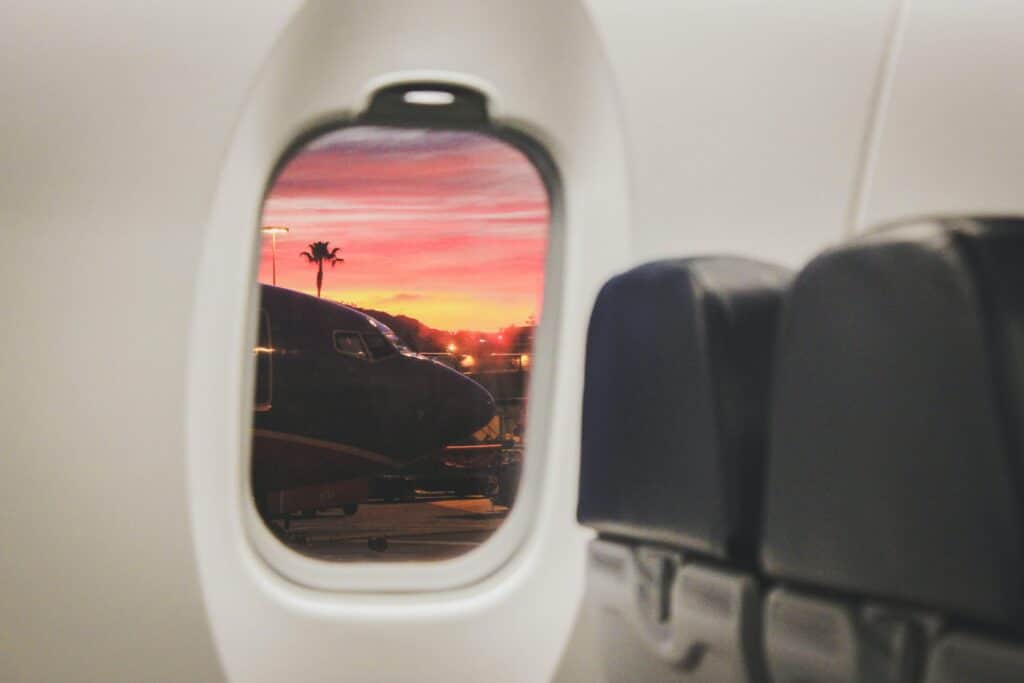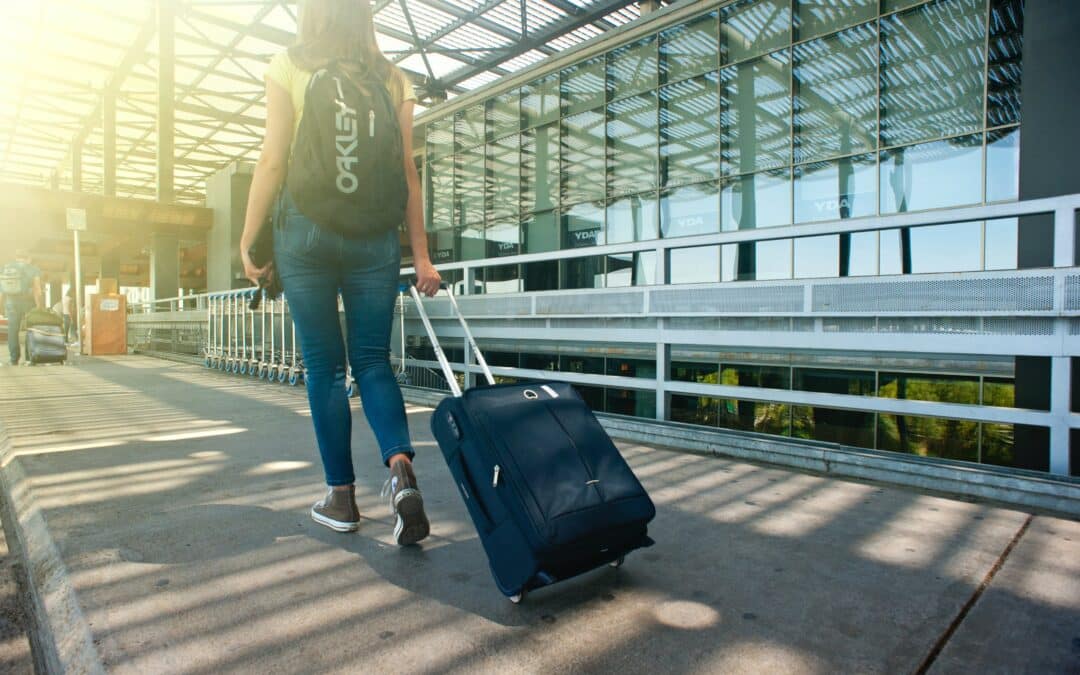Which Countries Do Not Allow Felons?
Being charged with or convicted of a felony shouldn’t be a permanent bar to enjoying life. But the reality is that it can pose some serious challenges.
Depending on where you want to travel, your felony record might halt you in your tracks. Here are some countries that could give you trouble and why a record suspension may be your best option for getting past the border.
How Different Countries View Felon Travel
Not all countries take the same approach to letting felons enter:
- Many countries, such as the 27 nations that make up the European Schengen Area, allow anyone to travel at will provided they don’t stay for more than 90 days.
- Certain countries don’t ask for your criminal background info if they have a mutual travel or immigration agreement with your country of origin.
- Some visa-free countries may ask you to complete an entry card when you arrive and request you to self-disclose your past convictions. Others demand that you get an electronic travel authorization that includes a background check in advance.
- Visa-requiring countries may or may not block travellers with criminal histories from entering. If they allow felon entry, permissive nations often take factors like the severity and nature of your crime into account. Be aware that most countries will judge your offences according to their comparable laws, not necessarily the laws of the place where you committed the offence or were convicted.
In short, you have to approach each travel situation case-by-case. For instance, different places have distinct requirements for how much criminal history you need to disclose. It’s best to speak directly with an immigration official — or check an official government website — from the country you want to visit before making plans.
Countries That Don’t Allow Felons
So which countries forbid felons from entering?
Canada
If you have a minor or serious felony on your adult record, you’ll be turned away from the border when trying to enter Canada. Some crimes that may make you ineligible include driving under the influence or participating in organized criminal activity.
There are different ways around this restriction. You can get a Temporary Resident Permit for a specific travel timeframe or apply for rehabilitation if enough time has passed and your crime is eligible. Alternatively, you can request a record suspension, which we will cover later in more detail as it applies to many different situations and countries.
Japan
Japan requires visas for stays longer than 90 days. If you were imprisoned for over a year, you’re likely to get denied, with limited exceptions made for political crimes. The same goes for drug, prostitution, and firearm convictions. It’s best to reach out to the Japanese embassy for the exact law, but know that many deniable categories, such as drug offences, include acts that are crimes under Japanese or foreign law.
Australia
Travelling to Australia requires a visa if you’re not from New Zealand or Australia. As part of your visa application, immigration officials will check for a criminal record from the past 10 years. Depending on what they discover, you might have to obtain police clearances — not only from the country you currently call home but also from any others you’ve previously lived in.
As part of your check, you’ll have to pass a character test. You’re generally guaranteed to fail if you have a substantial criminal record — meaning that you were sentenced to death, life, or more than 12 months of imprisonment, even if the 12 months were split into multiple terms.
New Zealand
New Zealand’s rules are similar to Australia’s, though they ask for more information. You’ll have to provide your entire criminal history to get in.
China
When you travel to China, you need to disclose your criminal record. Although there’s some confusion over how much you need to share, it’s best to be forthcoming — the consequences can be harsh if officials believe you’re hiding something.
Case in point, Chinese immigration officials often conduct random drug testing on anyone trying to enter the country. Testing positive is considered a crime even if you took the drugs in a place where they’re legal. China can also deny entry for crimes where you were charged but not prosecuted.
South Africa
People applying to enter or travel through South Africa have to declare their criminal histories in detail. This includes pending legal actions in addition to criminal convictions. You’ll also need to disclose memberships in organizations whose activities have been deemed illegal in any country.

Israel
Israel maintains visa-free agreements with numerous countries. However, it can deny any visa applicants who have criminal records.
Taiwan
Visitors can be barred from entering Taiwan for having a criminal history anywhere. Even if you intend to enter under a visa-exempt category, such as if you’re staying for less than 90 days if you come from certain countries, you must be sure you’ve done everything correctly. Customs officials may still ask you to obtain a permit after discovering your felony past.
Malaysia
Malaysia has a reputation for being tough on crime, and this applies to immigration. If you were sentenced to a jail term of any length, you have a high chance of being classified as a prohibited person. With that said, the visa application might not ask you about this, and there are lots of opportunities for visa-free travel.
India
The vast majority of travellers to India need electronic visas. You’ll have to answer questions about any previous crimes to get your documentation in order. As in other countries, Indian officials can also independently check your criminal history using international databases.
Iran
Iran’s visa application asks if you have a criminal record. You’ll need to share not only prior convictions but also arrests, and it doesn’t matter where or when they occurred.
Kenya
Most visitors to Kenya have to apply for an electronic visa. You’ll need to declare offences that occurred under any legal system to get through. This wasn’t always the case, but the country has tightened its requirements over the past decade or so.
United States
U.S. travel controls are extremely strict. You need to share your criminal history even if you’ve received a pardon, and having a conviction might cause you to lose your eligibility for a visa waiver.
Many different crimes can keep you out of the U.S. Also, the law on what constitutes a crime changes, so it’s best to talk to a consulate or embassy official. While crimes deemed purely political may be exempt, you’re still required to disclose them.
United Kingdom
The UK forbids felons from entering, but it does allow for spent convictions — the same as rehabilitation in places like Canada. If your crime is old enough and carried a prison sentence of less than 30 months, you might still get in. Although the immigration officials have to prove your crimes weren’t spent before denying you, it’s in your best interest to provide as much supporting information as possible.
Getting a Record Suspension Is Often the Best Option
There are two main ways immigration officials find out about your criminal history: self-disclosure and record checks. Failing to self-disclose isn’t a viable option — a country might request your record to verify what you say. Applying for a record suspension is often the best solution for people travelling to the countries listed above.
Record suspensions, also known as Canadian pardons, let you remove certain criminal activity from the Canadian Police Information Centre (CPIC) database. Although your history will remain in the CPIC system, it won’t show up if someone conducts a check.
The Value of Getting a Record Suspension
Why are record suspensions so important? For starters, spent and rehabilitated conviction exemptions don’t apply to every crime category. Also, these workarounds may take more time than you have if you want to travel soon.
Record suspensions can also help you enter many countries not listed here. When travelling to places like Singapore, the Philippines, Ethiopia, Tanzania, and Thailand, you don’t have to self-declare arrests or convictions, but officials can still deny felons. In other words, you can’t always count on friendly mutual customs agreements or programs that welcome foreign workers.
Finally, understand that record suspensions aren’t just for Canadian citizens. Most countries that request criminal histories don’t care where the crime happened. Being convicted in a Canadian court as a foreign national might hinder your ability to travel — even if you’re not planning on visiting Canada!
How to Get Your Record Suspension
Not everyone is eligible for a record suspension. Those who are qualified have two main options. You can download the official application from the Parole Board of Canada or work with a specialist.
Talking to an expert at AllCleared is faster and more streamlined than doing things by yourself. We help you with everything from confirming your eligibility to filing the forms and reviewing your letters of support. Our team provides multiple consultations and guarantees your submission will be correct — you even get live status updates to monitor your progress.
Ready to plan a more successful travel international experience? Start by reaching out to the AllCleared specialists.
